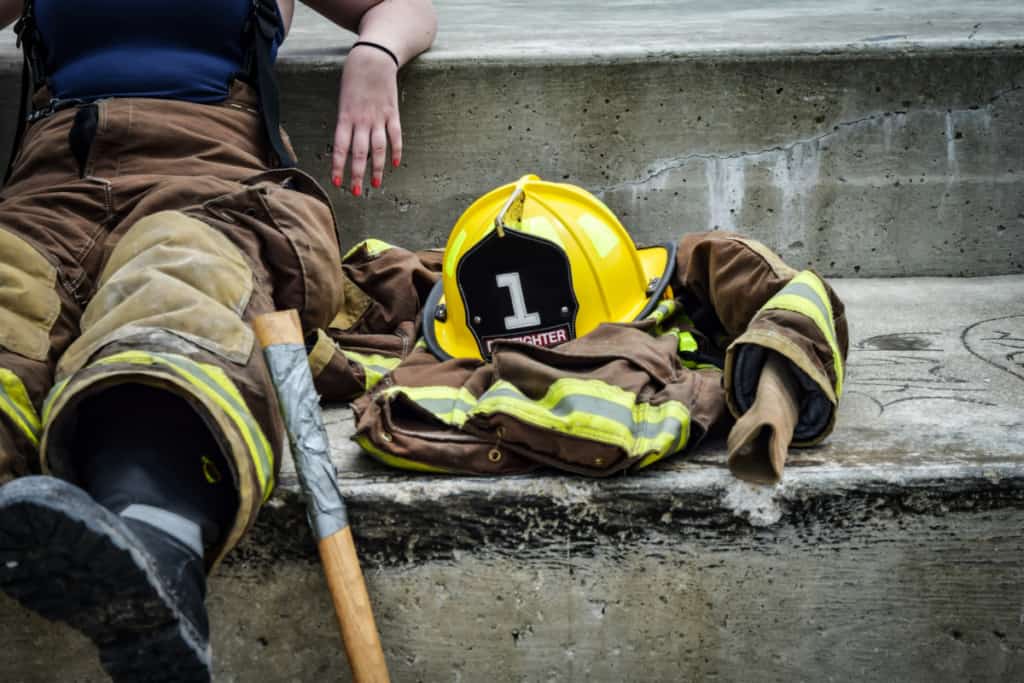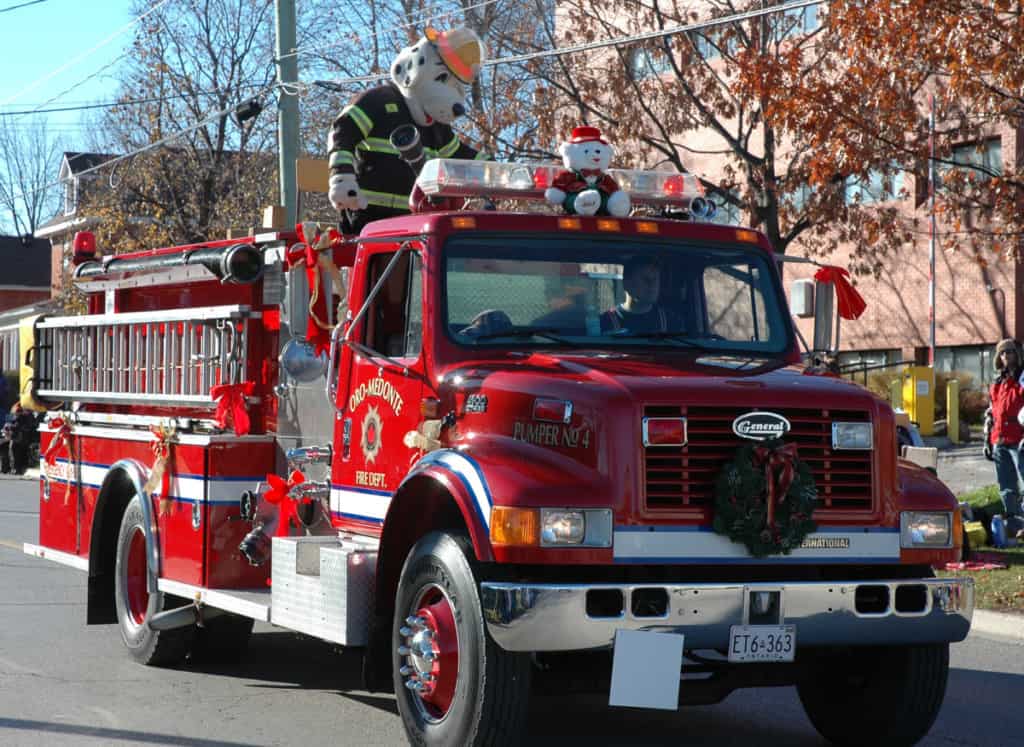The firefighter oral board interview is probably the most important step in getting hired. The written test and physical agility test (CPAT) are usually just scored as pass or fail. Most, if not all, of your score as a firefighter candidate, comes from your performance on one or more firefighter interviews. That means that you need to know ahead of time what you should expect and how to get prepared to successfully pass this pivotal step in the hiring process.
In order to prepare yourself for a firefighter oral board interview, you need to be prepared to present yourself as the ideal firefighter candidate using real stories from your life. You must do this while still directly answering any questions you are asked.
This sounds vague, but we will get into some important details to help you below. The firefighter interview is somewhat similar to other job interviews, in the sense that you’re competing for a position, but there are major differences that set this type of interview apart, and it’s important that you prepare properly.
For a shortcut to getting hired as a firefighter, check out TopScore Firefighter Coaching. It is the one thing you can do to speed up the time to getting your dream job more than any other.
Your # 1 priority is keeping your family safe. As a firefighter, I recommend everyone has updated smoke detectors that don’t require battery changes, like these ones from Kidde, a fire extinguisher, like this one from Amerex, and a fire escape ladder if you have bedrooms above the first floor, I recommend this one from Hausse.
Also read: How to Become a Firefighter: The Complete Guide
What to Expect
The firefighter exam process is tough. The written exam, physical agility, background check, medical – a lot of hoops to jump through.
But remember, all the preparation that is required to become a firefighter (classes, certifications, experience, etc.) is all just to give you a chance to be in that interview “hot seat” to prove that you are the best candidate for the job.
My #1 piece of advice for any prospective firefighter is to take the firefighter interviews seriously and to show up as prepared as possible!
When you get your first interview, it’s very common that excitement and anxiety will begin to set in immediately. The first interview is the most important step in finally earning the career of your dream. It’s essential that you know what to expect when you step foot into that interview room.
Going into the interview blind may not only hinder your ability to receive a job offer, but it also affects the impression that fire service professionals have of you.
We see candidates all the time that don’t put in the required time to prepare for their interviews and it really shows. Everyone was new and had to learn at one point, but you need to show that you put in the work to prepare for this step, because becoming a firefighter is very important to you.
Learning about the interview process and showing up well prepared is what really separates the best firefighter candidates (the ones that get hired) from all the others.
This is a competitive career path. Remember that there may be thousands of people testing for a few positions!
When I got hired, there were 3500+ applicants and they hired 12 people! The interview is what allowed those 12 to stand out above the rest. So, treat this step like your future career depends on it.
For the fastest path to mastering the interview process and getting hired as a firefighter, you should get coaching.
The best resource that I know of for this purpose is the TopScore Interview Coaching Course. It is, by far, the most efficient and cost-effective way to get hired as a firefighter.
Think of it as a small investment into your future. The time and stress the secrets in this course will save you will make up for the cost 10 times over or more.
Also read: Most Common Firefighter Interview Questions: Insider Info
Panel Oral Board Interview/s
The panel interview or oral board exam is your first interview of a fire department hiring process. During this interview, you’ll be questioned by a panel. This is not the same as your typical job interview
This panel may be all firefighters, engineers, and captains from the department you are applying, personnel from other nearby departments or even a mix of firefighters, city employees and citizens of the area. They will also frequently have a representative from HR (Human Resources department) to make sure the interview process is fair for all candidates.
Over the course of the interview, the members of the panel will ask you a variety of questions, and you’ll be given a time limit to complete all the questions. They may give you a written copy of the questions when you first sit down, so you know what they will be asking you.
The purpose of the interview board is to have several firefighters weigh in on the strengths and weaknesses of you as a firefighter candidate. Through an organized scoring process, panel members will be able to rank and rate the candidates based on their qualifications and determine who would be a good fit for the department.
They want to see people who are passionate about becoming firefighters, know and understand what the job entails, are eager to learn and are “trainable”, that fit with the culture of the department, and most importantly, that is someone they would like to work and live with for a 30+ year career.
There may be more than one panel interview to get your overall score as a candidate. You will then be placed on an eligibility list based on your score. They will use this list to schedule the next step, a Chiefs Interview; an interview with the department’s Fire Chief/s.
Chief’s Interview
Some people may tell you the Chief’s interview has the potential to be much less stressful than the panel interview. They say instead of having a dozen sets of eyes on you as you answer questions, it’ll just be you and the Chief (and maybe one or two other people observing). While these are all true, I would advise that you don’t treat this interview any differently than the others.
The Chief’s interview can be much less structured than the panel interview, with the goal of this interview being to get to know you as a person.
You need to show up prepared, as this is the person who will decide if you get the job or not. Passing the panel interview confirmed that you’re a qualified candidate, but it’s now the Chief’s job to determine whether you would make a good fit in their department.
They are able to ask more follow up questions to get to know you more and really understand your motivation and reasoning. They may even try to see how you will handle stress by pushing and questioning your answers. If this happens, you have to keep your cool and not lose it.
Based on this round of interviews, the Chiefs will decide you they want to hire and call with job conditional offers. These offers are contingent on a few other things like passing a background check, medical exam, drug test, or other criteria. If you’ve impressed the Chief, you most likely secured yourself a job.
To learn more about the other steps in the hiring process of a fire department, click here.
Types of Questions
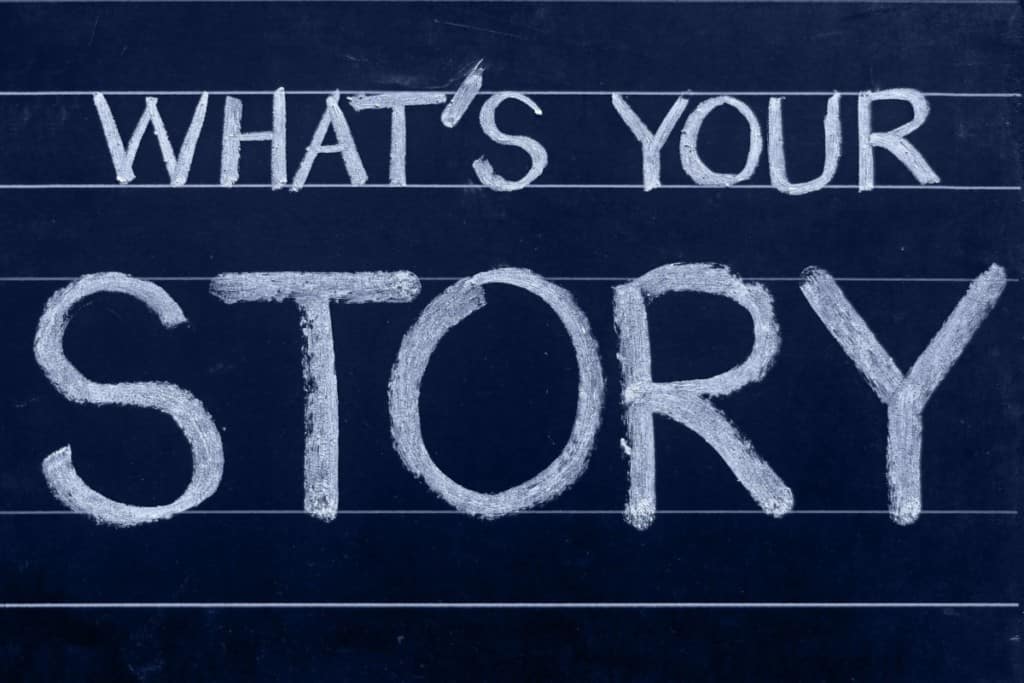
An important part of preparing for your firefighter interview is getting an idea of the types of questions that they will ask you.
There are several types of interview questions you’ll be asked, and it’s important that you’re able to answer each with confidence and accuracy.
Here are some of the things they will be looking to find out in the selection process based on your answers.
- Who you are as a person and employee (values)
- What you know about the fire service and about this specific department
- Why you want to be a firefighter (motivation)
- That you have a high level of physical fitness and are mentally ready to be a firefighter (trainable)
- That you can work as part of a team and bring a positive attitude
15 Tips for Success in Your Fire Interviews
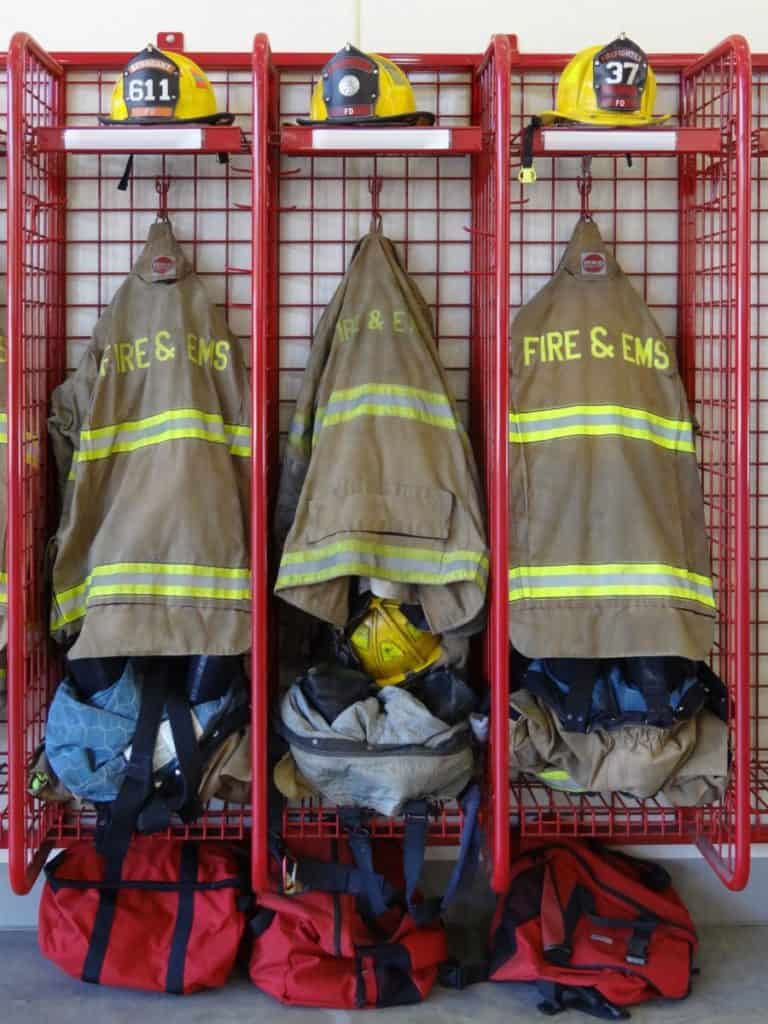
Getting your first interview takes some work, but making sure that you impress your interviewers takes much more time and effort on your part. It is all about preparation.
While you might feel confident in your knowledge and skills related to fire science, there’s much more to firefighter interviews than just knowing your stuff.
In fact, most of the questions they ask will probably have nothing to do with detailed skills and firefighter knowledge. You need to be able to make a good impression and convince your interviewers that you’re a solid fit for their department. They want to know that you will get allow with your fellow firefighter and know your role.
These may very well be the most important interviews of your life, and you should prepare as such. You shouldn’t expect to wake up 10 minutes before your interview, drive to the interview location and absolutely knock it out of the park without any significant effort. There are a few people who have done this, but it was not me.
When I started this process, I was terrible at interviews! Really, I was awful. But because I had the passion to push myself outside my comfort zone and I sought out the help I needed; I was able to make dramatic improvements and eventually land myself a career with my dream department. And you can too!
With that said, here are 15 interview tips for a successful firefighter oral board.
1. Dress Appropriately and Professionally.

Though people are reluctant to admit it, first impressions are very important. Dressing professionally and representing yourself well during your firefighter interviews demonstrates your perception of the career and your dedication to the field. It shows that you care enough about the opportunity they are offering you to dress the part.
When selecting an outfit for your interview, you should be looking for an outfit combination that is business professional. Some may say that business casual is okay, but I always preferred to be a little overdressed, if anything. Go for simple and professional.
My recommendations are:
- For men: A suit (dark blue or gray), white shirt, simple tie, dress shoes
- For women: A pantsuit (dark blue or gray), white shirt, dress flats or heels
For my first interview, I couldn’t afford to buy a suit, so I wore one of my dad’s. It didn’t fit great, but it was the best option I had.
I eventually saved up so I could afford a suit of my own. It was a lot of money to me at the time, but to me, it was well worth it to give myself every chance at my dream job. It doesn’t have to be a fancy, expensive suit, just one that fits good and is professional.
For less than $200, you should be able to get a suit that will work great. Any cheaper and it may not last very long. Better to spend a little bit of money, so you don’t have to get another one when it falls apart. Here is a great option for men.

In addition to the right outfit, you have to make sure that you’re well-groomed. This includes taking a shower, combing and styling your hair, and limiting jewelry, makeup, and perfume/cologne. You want to look good, but you don’t want to draw too much attention to yourself.
Many may disagree with me, but I always recommend a clean shave (no mustaches, goatees or beards).
Also read: What to Wear to a Firefighter Interview: Attire for Getting Hired
2. Arrive on Time and Be Prepared.
Like I mentioned earlier, you shouldn’t begin preparing for your interview the night before. The preparation should have started long before the interview day.
One of the first things you should do after your interview is scheduled is to find the interview site on a map and do a test drive to the station.
This will allow you to get accustomed to the route you will take and know how long it takes to get there so you can leave at the right time on the day of the interview. This may sound silly, but you don’t want to be the person who shows up late because you didn’t pre-plan.
You should also make sure that you get to your interview early the day of. In the fire service, they say, “Early is on-time and on-time is late.” Punctuality shows that you are serious about this job, professional and respectful of others’ time.
For the panel interview, you need to bring several copies of your firefighter resume to distribute to each member of the panel (6-10 copies should be enough). A cover letter is optional.
Your resume should be tailored to a career as a firefighter and contain information that proves you’re qualified. Here are some resume writing tips. Include these three main categories:
- Education (Degrees, special classes)
- Experience and Training (past jobs whether related to fire service or not)
- Certifications (EMT, Paramedic, Firefighter 1, Rescue Systems, Fire Prevention, etc.)
3. Think About Your Answer Before Answering Each Question.
You’ll probably be a little stressed during the interviews and feel pressured to answer quickly and concisely. This is super common and it is okay. You’re nervous because it is important to you. However, you won’t get extra points based on how fast you respond.
Before you answer, take a deep breath, pause for a few seconds to compose your answer, then speak calmly. There is a time limit for the interview, but if you rush to answer every question, your answers won’t come across the way you had intended.
When a panel member or the Chief asks you a question, the most important thing you can do is think about the question and how to answer it.
Ideas will immediately begin flowing once the question is posed, but you shouldn’t just blurt out the first things that come to mind. This part also becomes much easier the more time you have practice and prepped for your interview because you aren’t surprised by the questions.
You want to show your interviewers how deeply you can think and provide elaborate responses that show them just how qualified you are. Take your time when answering and make sure you think clearly about your response before giving it.
This is a testament to your communication skills, which our vital to your work as a firefighter.
4. Research the Department and Position.
One of the best ways to show your interest in a firefighter job is by researching the department to which you are applying before the interview. This not only allows you to get a leg up and know the right things to say, but it also shows your potential future employer that you’re interested in the position and department enough to research it.
The secret here is to find ways to learn about what makes this department unique. Seek out information that you can’t find just by searching on the internet. If it’s easy to find, then all the other candidates will find it as well.
A great way to do this is to do station visits before or during the testing process. Make sure to follow the rules and etiquette as described in the hiring process. If they don’t tell you about station visits, you should ask.
It’s always good to call the station ahead of time to make sure they will be there and have time to talk with you. It’s a good idea to not show up empty-handed (ice cream is never a bad choice, but a homemade treated is great too). When you are there, have questions prepared to find out about the department. Here are some ideas:
- What makes this department different?
- Why do you like working here?
- What are some current issues or changes the department is going through?
- Does the city leadership support and have a good relationship with the department?
- What does the department value most in a new firefighter?
- How does the fire department interact with the community they serve?
For firefighter interviews, the information you research will be slightly different than that of other job interviews. Rather than getting information on company sales and job performance, there are other things you’re going to want to focus on. You should also do research online as well.
Here are a few ideas of some information you might want to look for about the department you’re interviewing at:
- How many stations are there? How many fire engines, trucks?
- How big of an area does the department cover?
- What specific target hazards are there?
- How many calls does the department run per year?
Another simple thing you can do here to get a leg up is to actually read the job description that you are applying for. This can give lots of valuable info about what they are looking for. You can use some of the key phrases that you find to show you pay attention to details and understand what they are after.
5. Learn About Yourself and What Makes You Qualified.
Certifications and passed examinations show you’re cognitively qualified, but there’s more that goes into being an ideal applicant. Just because you have knowledge of what it means to be a firefighter, that doesn’t mean you’d make a good firefighter. You need to set yourself apart from the other candidates.
This is the point at which you should evaluate your personal strengths and weaknesses. Self-reflection. This is a step that many people skip or don’t spend enough time on because it can be difficult.
You need to review what is important to you in your life and why. Why do you really want to be a firefighter? Try to spend some time really thinking about these questions. Be honest with yourself.
For example, if you communicate and work well with others, this can easily translate to firefighting. If you’re great at analyzing situations and brainstorming a solution, this is something you should demonstrate in your interview.
Basically, you’re looking for any skills that you have that can be beneficial as a firefighter as well. But most importantly, you should try to understand your motivations.
When reflecting on yourself and your own abilities, it shows a lot about you if you can identify your own weaknesses. Employers know that no candidate is perfect, and a candidate that knows and admits their own weaknesses is more likely to be able to work on them and turn them into strengths.
When you talk about a weakness, it shows character and maturity that you can accept and admit your short-comings. Be sure to talk about what you have done or are doing to improve your weaknesses.
6. Apply Your Past Experiences When Answering Questions.
Panels and Fire Chiefs aren’t expecting every candidate to already have experience firefighting, but applying your past experiences may be helpful to you during the interview.
Real stories and past experiences are what take a mediocre or even good answer to an interview question and turn it into a great answer! This is the secret sauce that will allow you to stand out from your competition. This is one thing that successful candidates almost always do.
Though you probably won’t be able to speak about how you extinguished a certain number of fires or other firefighter skills you possess, that’s not important. Almost all your previous employment and experiences can transfer over to being a firefighter. (Though experience as a volunteer firefighter or wildland firefighter is never a bad thing.)
The mistake many people make is trying to relate everything to any fire service related experience that they have. Some of that is okay, but any experience you have in your life can be relevant to a career as a firefighter.
Let’s say you worked as a cashier at a convenience store. That’s customer service, which is a huge part of being a firefighter. Talk about what you did to make the customer’s experience better and why that is important to you (if it actually is). Or how you interacted with your coworkers and worked as a team.
Or maybe you worked in construction. Building construction is a whole class that is taught as part of a degree in fire science. Understanding how buildings are built can help firefighters understand how they will burn and how to prevent injuries.
As you can see, you need to relate whatever experience you do have to the fire service. Use this to show them that you understand what the job of a firefighter really is and prove to them that you can do it with your actual experiences.
If you can relate your past to the questions they’re asking, it shows that you might be more capable in the position than other candidates. You might even be asked questions about your past, such as how you handled certain situations, how past experiences changed your outlook, and how you relate firefighting to previous employment.
Overall, the goal is to show that, even though you don’t have direct experience as a firefighter, you still have relevant life experience that you can use to your advantage.
7. Describe Your Answers in Detail.
As you’re sitting in your interview, you might be asked a question that could feasibly be answered with a “yes” or “no.” The absolute last thing you should do is simplify your answer in one word. Simple is good, but you need to give them an answer they can score you on.
For any question, even a “yes” or “no” question, there is always the opportunity to elaborate on your answer. You should always take this opportunity. Not only does it show that you took their question at more than face value, but it also allows you to demonstrate what you know and displays your social skills.
Try to understand what they are looking for with the question they are asking. Give them an answer that shows you understand this and use a real example from your life to prove you have already lived it.
8. Know the Basic Types of Questions.

Firefighter interviews are not like most other job interviews you’ve probably been on. Unlike most types of interviews, it’s almost certain that those being interviewed at fire stations are brand new to the field. With that said, Fire Chiefs and panelists wouldn’t learn much about a candidate if they only asked about past firefighting experience. They usually don’t expect you to have much firefighting experience.
Instead, the questions are more focused on on-the-job scenarios, personal skills and interests, strengths and weaknesses, your goals when it comes to firefighting, and your personal morals, values, and beliefs.
Your interviewers are striving to learn about how you would function as a firefighter in their department, in particular. They are trying to decide if you fit the department culture.
The good thing about firefighter interviews is that almost all of the questions can be found and prepared for. If you don’t have a pretty good idea of most of the questions they are asking, as well as how you will answer them, then you are not adequately prepared for your interview.
You can find lots of example questions online and almost all the questions you are asked will be variations of these.
Here are some common interview questions and topics you might be required to speak on:
- What have you done to prepare to become a firefighter?
- Why do you want to be a firefighter?
- What do you know about this department?
- How you would respond in specific emergencies
- What makes you qualified to be a firefighter?
- How you can use your strengths to help you as a firefighter?
- The duties you’ll be expected to perform as a firefighter?
- Your ability to work with others and take orders from your supervisors?
- Your moral standards and beliefs
- How you and your loved ones will cope with your new work schedule
- Your goals (firefighting-related and general)
- Situational questions as a probationary firefighter (stealing, following orders, chain-of-command, knowing right from wrong)
- How you handled yourself in a stressful situation
Here is a resource for some more sample interview questions.
9. Mention Anything Important That They Have Not Asked About.
You have a lot of experiences and skills that you can use to your benefit as a firefighter. However, your interviewers won’t be able to ask you everything. That’s why it’s important that you do your best to slip in any information that you seriously want your interviewer to know.
Elaborating on your answers is the perfect time to mention the certifications that you have, relevant work experience, skills pertaining to the field, and anything else you think is related. As long as it flows naturally, your interviewers will not question the additional details.
The question, “What have you done to prepare for the position of a firefighter?” or something similar is one they will almost always ask you. This question is the best chance to talk about the majority of your education, experience, and certifications. This will probably be your longest question to answer because you don’t want to leave out anything good. But you still need to be mindful of the time limit, so try to be concise.
At the end of the interviews, it’s almost guaranteed that your interviewers will ask you, “Is there anything else you wish to add?” This is the perfect time to mention your additional qualifications and skills that you haven’t mentioned yet.
Remember that this is still a scored question, so if you have covered everything you wanted to say, you can do a quick summary and closing statement. You need to say something so they can give you a score on that question.
Your interviewers can only judge you on the information you provided them. If you answered questions quickly or did not offer additional information, there isn’t much they can judge you on. This is the easiest way to blend in with the crowd and be passed up for a job offer.
Try to include real stories and personal experiences into your answers wherever possible to set yourself apart and leave them with no doubts that you are the candidate that they are looking for.
10. Demonstrate Good Social and Communication Skills.
This may seem obvious, but don’t forget that you are judged not just on what you say in the interview, but on everything you do as well.
Saying the right things during your interview is obviously important, but presenting good social skills may just be a little bit more important. After all, a career as a firefighter requires you to interact with your fellow firefighters, supervisors, and the general public on a near-daily basis. After all, firefighting is really all about customer service.
So, what types of good social skills should you display while on your interview? Here are some examples of things you should remember to do:
- Introduce yourself clearly and offer a firm handshake
- If your interviewer has a title (like Chief), be sure to use is when speaking to them
- Be polite, respectful, and have a great attitude
- Use appropriate language and relevant vocabulary
- Sit, stand, and speak confidently (good body language)
- Smile and show interest
- Be enthusiastic and show that you are passionate about becoming a firefighter!
11. Be Able to Put Yourself in Someone Else’s Shoes.
As mentioned earlier, some of the questions your interviewers will ask in the panel and Chief interview will be scenario-based. What that means is that you’ll be given a hypothetical scenario that you might face eventually as a firefighter and describe how you would respond to the situation.
While you aren’t physically in that scenario just yet, there’s a good chance you will be at some point during your career. Being able to respond truthfully and correctly not only shows that you understand what is being asked, but that you would be able to evaluate the situation as it’s happening and figure out the appropriate response.
They want to see that you can make good decisions based on strong values.
In the same realm, it’s also helpful to be able to show empathy. Knowing the proper response to a scenario is great, but being able to put yourself in somebody else’s shoes and understand their actions at the moment demonstrates an incredibly rare skill that employers find useful.
12. Show Passion, Dedication, and Motivation.
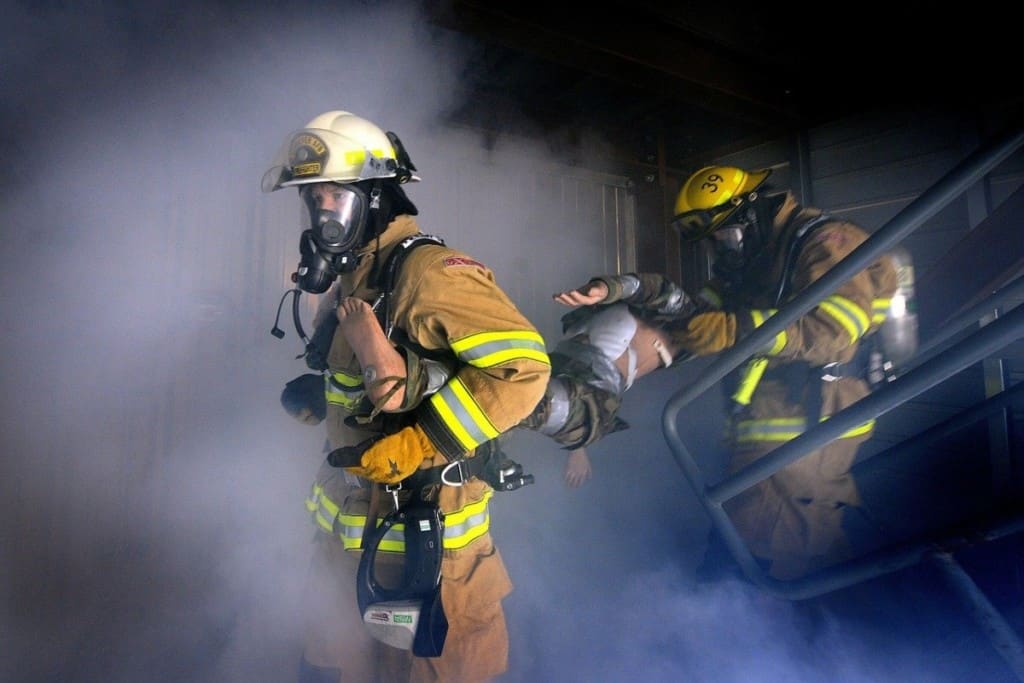
One of the biggest mistakes you can make at your interview is just spewing off any knowledge you have in fire science. Yes, your interviewer wants to see that you know about the field, but these interviews are more about learning about you as a person. They want to see that this opportunity is very important to you.
It is important to be yourself and sincere in your interview. If you’re seriously passionate about being a firefighter and making an impact on society, it’s important that you show that.
You might be thinking, “I wouldn’t be at this interview if I wasn’t passionate about firefighting.” That may be true for you, but any boss or supervisor knows that some people view jobs simply as a source of income. You need to be able to explain what about being a firefighter really appeals to you and prove that you are the right person for the job.
Though you’re undoubtedly interested in making some money, your interviewers should be able to see that your career choice is about helping others and spreading your passion.
But your answer to why you want to be a firefighter better be much more than, “Because I want to help people.” Most every candidate says that. You need to get more personal and help us understand the real reason you are passionate about becoming a firefighter.
When you let your true personality show rather than acting somewhat robotic, you offer your interviewers a brief glimpse of who you truly are. This allows them a better chance to picture you as a member of their department.
13. Practice for the Interview.
There’s no way to know exactly what questions you’ll be asked at your interview, but you can get a pretty good idea of the things they are looking for. Use the resources above to see the types of questions and put some real work into how you will answer them.
Every candidate I talk to says they practice for their interview, but when I ask them basic questions that anyone can look up online, they are prepared to answer them. This shows you didn’t put in the time.
If this career is important to you, preparing for the interview is THE BEST thing you can do to improve your chances!
Once you’ve brainstormed some solid answers to these questions, you need to work on giving those answers and representing yourself well. Here are some suggestions for how to practice for an interview:
- Write down your responses to the common interview questions (Bullet points are good so you can organize your thoughts without them coming across as “canned”)
- Brainstorm an introduction (Describe who you are and why you would be a good candidate)
- Time your responses to the major questions so you can manage your time appropriately
- Practice with another person or alone in front of a mirror
- You should also have a closing statement prepared
- Schedule a mock interview with your local fire department
- Ideally, get interview coaching to speed up the learning process
14. Record Audio or Video of Your Interview Practice.
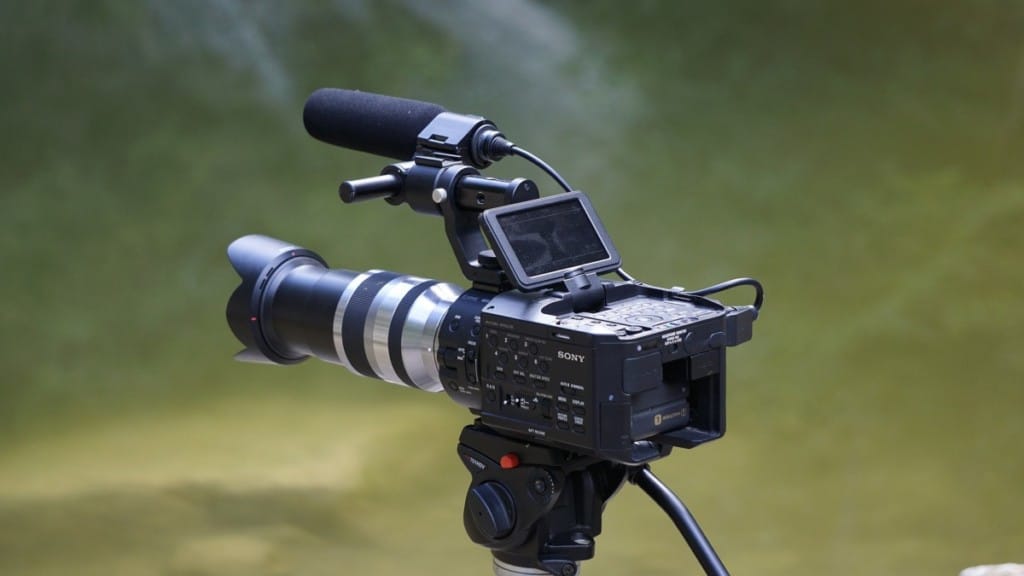
Recording yourself on your phone is a great trick for interview practice. Once you have an idea of basic questions, you can practice while filming yourself or even just recording your voice. This gives you a chance to see how you sound and act.
Most people are surprised to get a look at the things they say and do in an interview. You want to be as professional as possible. Try to get rid of space filler words like, “um” and “and”. See if you make weird gestures that distract from your answers.
15. Take Notes After the Interview
In the ideal world, you would ace the first interview and get a job offer within a few days. However, it’s entirely possible that you’ll make it through your first interview or two without getting the job. Most people don’t get hired from their first firefighter interview, so don’t get discouraged.
Use the experience from one interview to make you better prepared for the next. After all my interviews, I would go out into my car, and right away I would write down all the questions that I could remember them asking. (Not to share with other candidates).
I would then take any notes I could remember about how I answered, mistakes I made, questions I didn’t feel prepared for, etc.
These notes were extremely helpful! I had a ton of great info and feedback I could use to make sure I was better prepared for the next interview.
From what I have seen, not very many people did this, which meant that they were more likely to make the same mistakes again next time. Don’t let this be you! Use this info and become a firefighter as quickly as possible.
Conclusion
Congratulations on earning your first firefighter interview! After you’re done celebrating this major achievement, it’s time to get down to business and make sure you’re ready for the interview day.
You should have a general understanding of the types of interviews you’ll experience and what kinds of questions you’ll be asked. We suggest you follow these guidelines to help guarantee yourself a job.
- Dress professionally and bring any documents the interviewers ask for.
- Make sure you have answers prepared for the most common interview questions.
- Reflect on your own life and apply your experiences to your answers.
- Be knowledgeable in what the job of a firefighter is really like and be able to speak about it intelligently.
- Practice, practice, practice!
Related Articles
8 Tips for the Firefighter Physical Test: Passing the CPAT
What to Wear to a Firefighter Interview: Attire for Getting Hired
